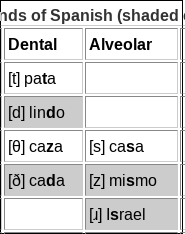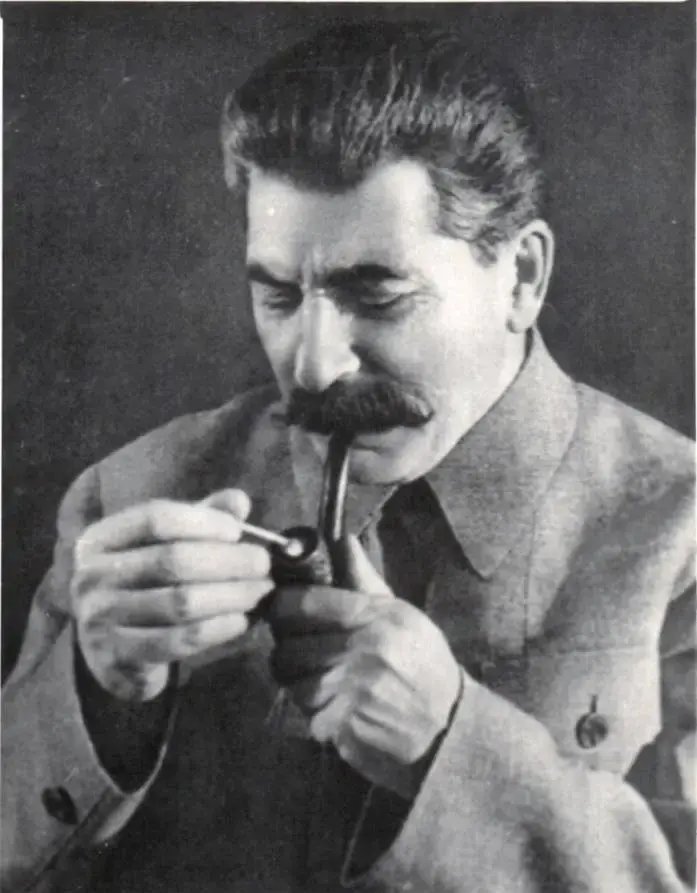Hello Deplorable Spanish-learning Tankies.
I want to draw your attention to The Linguistics of Spanish.
If you are learning Spanish, you may find it useful to read up on the linguistics. The following link gives
"information and analysis on the following subjects:
- the pronunciation of standard European Spanish
- variation in the Spanish-speaking world
- aspects of Spanish syntax
- the history of Spanish"
This website is very useful for helping you understand the sounds of Spanish, to better understand / parse what you hear, and how to improve your accent. The section on phonemes and minimal pairs is especially helpful.
Minimal pairs will help you learn to distinguish the different sounds in Spanish. These allow you to learn what each letter sounds like when it is next to each other letter.
Once you read the theory, you can search Youtube for audio examples. You can also practice speaking the minimal pairs if you struggle with any of them, although I advise you to listen first and lots to ensure that you are practicing the correct sound. Some minimal pair examples:
paso, peso, piso, poso, puso
And:
capa, cata, caca, cava, cada, caga, caza, casa, etc
Do any of you other Spanish learners / speakers have any other useful suggestions for learning about Spanish linguistics?
Any tips on pronouncing the ‘lr’ sound in e.g. ‘alrededor’ will be welcome!
Also worth mentioning that it seems easier and more useful to learn the LatAm pronunciations, unless you’re going to move to Spain for whatever reason
Learning European pronunciations could help you remember spelling c, s or z
es verdad
I’ve been learning the mainland Spain version. From around Madrid / Barcelona if I can help it, for consistency.
But I default to something closer to Andalucía, swallowing my s’s. And pronouncing my ll’s closer to j then y.
Oh, c’mon it’s not that hard… The Spanish Z is just a hard “TH”
Never said it was hard, just not necessarily worth focusing on more than LatAm pronunciation 🇨🇺
👍
Is the “lr” sound difficult to pronounce? AFAICT it just seems like you pronounce them like they’re pronounced separately (except without a pause), e.g. this
EDIT:
 I wonder why the entire row under “mismo” is empty?
I wonder why the entire row under “mismo” is empty?wonder why the entire row under “mismo” is empty?
Palestina doesn’t have an [ɹ] sound. Must be a mistake.
You just the thw “i” sound with a short “r”, when words start with “r” you do the thingy with the tongue multiple times, when it is in the middle of a word it is soft (unless there are two "r"s). Example, “pero” (“but”) and “perro” (“dog”).
Regarding all the distinctions that table does on phonetics I wouldn’t give it much importance, in Spain they don’t use the “s” sound, everything is like a “z”, in Argentina everything is a “s”, no “z”; in Central America they pronounce “r” as “l” sometimes. As long as you make a more or less similar sound you are good, since Spanish phonetics is quite minimalist/basic in comparison to English or French for example. As long as you don’t pronounce vowels like the yanquis do where the do it like “perrou” (if you were to write it with Spanish sounds).
That’s useful to know :)
Quick question: would you say that there are different Spanish accents? I think there are. But I said this to someone from Spain and they said, ‘Spanish does not have accents!’ That seems incorrect to me…
Well, it depends on what you consider accents. In Spanish when we say accent we mean this: ´, á, é, í, ó, ú. Maybe they thought you were talking about this? Still, we do have, and we have that one and the dieresis: “pingüino”. If you mean different ways people talk phonetically, of course we do, it’s impossible for a language to not have one, here in Argentina alone we basically have different ways to pronounce everything in every province. In Entre Rios they pronounce the “r” as the Chinese do, in Santa Fe people generally don’t pronounce the “s” for plural words “Los perroh”, in Cordoba the prolong the first syllable of each word in a funny way, and so on and so on. Is this what you were asking?
Thank you.
I thought so.
Yes, that is what I was asking, and you have cleared it up for me.
Interesting to know there is so much variety within Argentina; I often hear that the Argentinian accent is the most unique, but maybe that depends on the region within Argentina (it also seems like a strange thing to say, but people learning languages do talk about strange things). I like the Argentinian accent(s) that I have heard so far, and contrary to what I have heard, it’s a lot easier to understand than some others.
Well, because when people say the Argentinian accent they mean the rioplatense, which is what is spoken in Buenos Aires, the capital, the rest of the interior are regarded as low level humans compared to them. Still, most of the country sounds like variants on the rioplatense, in some provinces even with zero to little difference depending on how rural the region is.
That doesn’t surprise me.
Inside Spain? Yes. Has that person ever spoken to an Andalusian?
That’s where they were from!
Maybe it was a Spanish joke and I just didn’t get it?
Edit: they were adamant, though. If this was not the driest of dry humour, they were outright refusing to accept the idea that there are different Spanish accents.
European Spanish accents are heavily influenced by the other national languages spoken in the regions. Unless this is a nationalist matter that I don’t get as a foreigner, they were fucking with you.
That’s what I thought.
The only other thing I can think of is that it was a kind of nationalist joke; like, there are no Spanish accents because if they don’t sound like me (the person from Andalucía), they’re not really speaking Spanish.
gracias, serpiente
De nada, Carpincho Tincho.
jerga nueva de Argentina?
Tincho is a nickname for people called Martín, but it also means someone (male) who has a lot of money and generally is heterosexual, but in this case it’s just the first thing because it rhymes. I’ll gift you this video of a carpincho drinking mate. https://www.youtube.com/watch?v=RRrCMrZapTQ
muchas gracias por el video, camarada serpiente
Ocelote Revólver Ocelote Revólver
Lo que faltaba, más gente aprendiendo el peor idioma de todos y que definitivamente yo no estoy hablando ahora
El francés es mucho peor honestamente.
“El francés es una pérdida de tiempo”
– doctor HakimBuf, fuera de bromas, el francés sí que tiene problemas. Me parece bonito, y familiar (soy medio gabacho, un xarnego en todas las definiciones lmao) pero es enrevesado de cojones. Sobretodo los números. Pero al menos tenen la mejor pronunciación del número 42 (dilo en francés en voz alta)
Me jode mucho que tengan tantas vocales, dios mio, para que carajo quiero cuatro "a"s, es estupido, y los numeros me parecen una desquiciadez. No se como se pronuncia el 42, lol.
La evolución de los idiomas es como la biológica, lol. En catalán tenemos muchas vocales, también… Y 42 se pronuncia “cagando”, en serio. Ponlo en google translate xD




